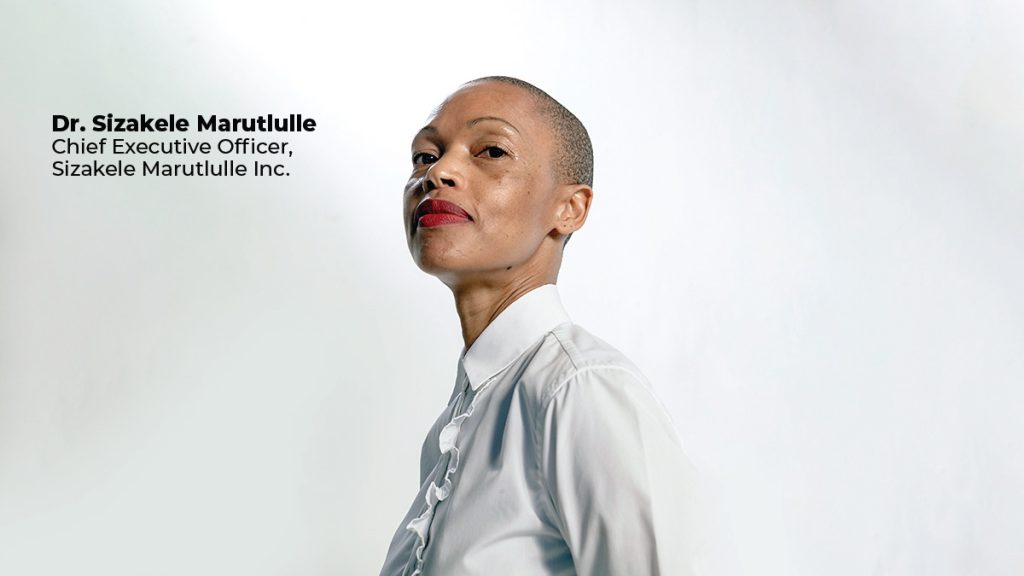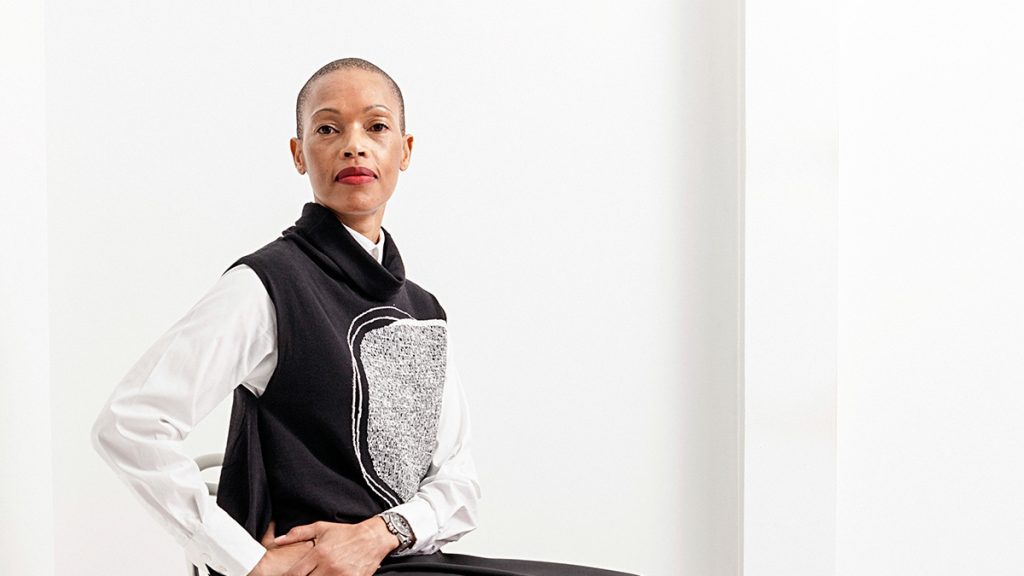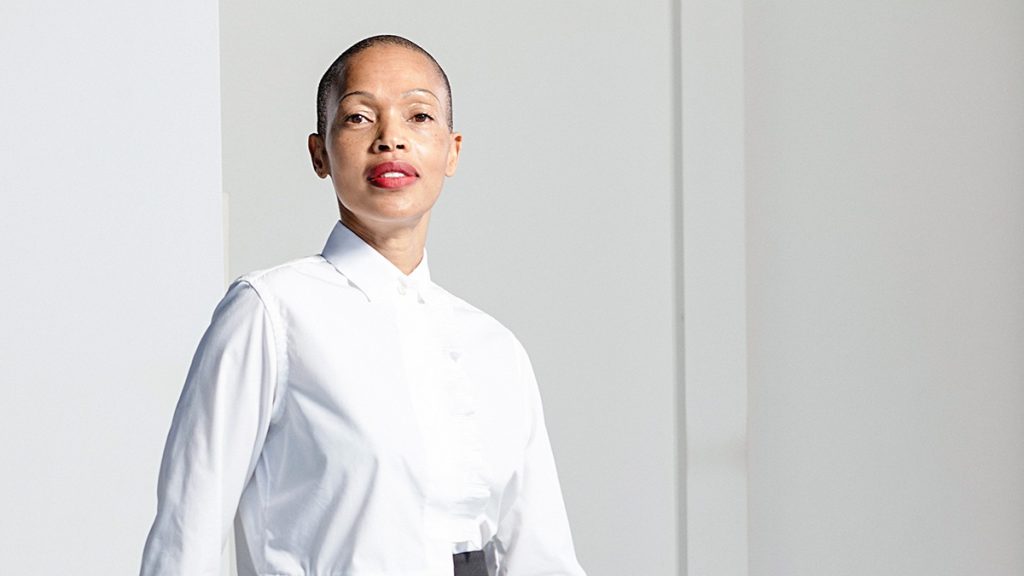
The Purpose of Dr. Sizakele Marutlulle
In this article, delve into the world of corporate remodeling with social impact design, guided by the expertise of Dr. Sizakele Marutlulle. In this article, we discover how she helps organizations realign their goals, fosters purpose-driven transformation, and highlights the significance of integrating social impact into business strategies for long-term success and community engagement.
Corporate remodeling with social impact design plays a crucial role as organizations strive to make sense of traditional thinking, overcome political barriers, and distinguish between tools and crutches. It reminds us that vision is not about nurturing a baby but delivering it to adulthood, ensuring long-term success and meaningful impact.
When I first met Dr. Marutlulle (I’m not allowed to tell you how long ago), the encounter terrified me. A young African militant, it seemed; features hardened to granite, and anger in the eyes. I had just started working in the same advertising agency where she occupied a senior position.
I saw intelligence aplenty behind those eyes, but it was the steel in them which commanded the most attention. She was mad as hell at that moment, so I had not the slightest inclination to draw attention to myself, slipping out of the meeting room as quickly as I could when the meeting ended.
Not too long after this daunting introduction, I found myself in the unenviable position of having to present an advertising concept to her.
I showed her the idea, rationalized my approach and girded my loins for the inevitable exposure of my lack of knowledge/creativity/understanding the market etc. You name it, I was about to be exposed for not having it. But when I looked up (in the resigned manner of Dickens’ Sydney Carton walking to the guillotine) Sizakele Marutlulle had actually turned her face away to hide her tears. Then she turned back with both a smile and glistening wet cheekbones, and said: “Smeddle, I have no words”.
And then I got it. In both encounters, she had reacted to the same stimulus – humanity. On the first occasion, it was about something which happened which indicated a lack of humanity. On the second, she had just seen an idea which dripped of it.

Most of Sizakele’s closer associates call her by the affectionate diminutive name Za and it always made me smile because the former has a soft and lyrical regality to it while the latter has a blunt funkiness that could easily be a fashion brand name. Both suit her equally.
This is the nature of the woman with whom I was privileged to work with all those years ago.
A woman whom titans of industry now invite into their lairs and ask her to remodel their businesses. What makes her inclusion in this magazine so relevant, is that in an era of transformation largely guided by technology, her approach to corporate remodeling with social impact design reminds us of the most intricate and powerful technology of all.
Ourselves.
It’s well-nigh impossible to describe a common modus operandi to which Sizakele adheres, such is the diversity of sectors she deals with and the problems she encounters. But there is always a common outcome. And she was about to tell me how.
Za and I sat in the simply furnished and library-quiet cafeteria of the Gibbs Institute of Business Science, where she lectures as an adjunct professor and when we stopped happily reminiscing about the past, I challenged her.
“Come on Za, there are thousands of independent consultants and hundreds of large consultancies who all claim that they have the solution to corporate problems. And a lot of them are pretty successful, too. What on Earth makes you think you can arrive in the lobby of a giant corporation with something different? What makes you think you have the answers?”
You must understand I asked this question not out of cynicism, but to release the inner warrior. What I’d forgotten was that inner warriors tend to ambush, rather than just arrive by invitation. So what I got instead was the disarming decoy.
“Smeddle, that’s just the point. I don’t arrive with the answers, as you call them. And I don’t try and instill or install systems that guarantee profitability or improve shareholder value. I would never presume to stand in front of the board members of a multibillion-dollar corporation and claim to have the right answers.” She pauses.
“I stand in front of them and ask the right questions.”
Dr. Sizakele Marutlulle
She leans forward, warrior emerging. “And eventually, they tell me the right answers.”
I liked this a lot. But before this interview turned into Za asking me all the questions, I pressed on.
“We live in a world where tech is the solution to most business challenges.
It’s the only way for companies to, well, move – be it robotics in logistics, IoT in retail, AI in everything. What role does tech play in your thinking?”
She pounced on this. “You know, there is a difference between movement and progress. It’s like a thinking divide. You can’t bridge that divide with tech, only policy thinking. Maybe 75% of the companies I help were stranded in this chasm. The most overworked word in the business lexicon for the past twenty years has been transformation. But the term has only really been applied to technology and how we need to adapt to it. The value of the word is much bigger. And if we bend it just a little, we come up with an idea that encompasses who we are right now as just as important as who we want to be. Reformation, in other words. A consciousness of whether we have the right mental capacity to achieve what we want to achieve, and the will to go after it if we don’t.”
“The man in the mirror?” I venture.
“The human in the mirror” she corrects me, laughing. “And that’s not a gender thing, it’s a deeper connection we have to make.”
“You’re a philosopher, then?”
“We’re all philosophers. No, if you insist on titling me – which I hate – I suppose you’d call me a Social Scientist with my role being social impact design,” she added.
“When I’m invited into organizations to help them realign their goals, their process or whatever it is that may have contributed to a loss of direction, I have a particular structure which I follow fairly rigidly. But that’s where the rigidity ends. The rest are pure fluid dynamics.
“The first thing we do is have what I term a provocation talk. I sit with the executives and ask questions. Sometimes the questions are tough. Often, the discomfort levels are too much.

That’s the problem with mediocrity, right? It’s just too damned comfortable.
The second thing we do, once the problem is pinpointed with honest discussion, is go after the opportunities by running an ideation session. It may not be a session per se, but it is an open forum for ideas which address the problem.
Number three, we plot a path for the future.
We design a reformed, transformed, informed strategy.
Dr. Sizakele Marutlulle
We just need to make sense of it all. Sometimes we’re so bound by traditional thinking, protecting ourselves against politics, being unable to tell the difference between tools and crutches, etc. etc. that we lose sight of vision, as strange as that sounds. Vision is not about nurturing a baby. Vision is about delivering her or him to adulthood.
We make sense of things so we can have the courage to take a direction.
And that allows us to craft the future in the way that we want to craft it.
For me, sustainability is about baking in endurance and resilience into your business model.
And the only way to do that, is to put purpose before profitability.”
“But isn’t purpose a little fuzzy when compared to a concept like profitability?” I ventured.
“No! It’s a liberating, community-bonding state of mind that harnesses collective energy through positive reinforcement.”
Sizakele answers.
“There are two great things that always happen to me when I help remodel a business. Firstly, the purpose is always the same, which is the health of the company when you hand it over to the next generation of leaders. And secondly, I never tell them that. They tell me.
We started this conversation by me telling you I don’t provide answers, I ask questions. And then, they provide the right answers. In essence, the companies I work with figure it all out themselves.”
And then, a mischievous glint in her eyes as she ended.
“They just need a doctor in the house to remind them of how healthy they really are.”
Dr. Sizakele Marutlulle accepts invitations to invigilate corporate remodeling from all sectors of the economy, all over the world. You can reach her at sizakelemarutlulle.com
Inside Telecom provides you with an extensive list of content covering all aspects of the tech industry. Keep an eye on our Interviews to stay informed and up-to-date with our daily articles.